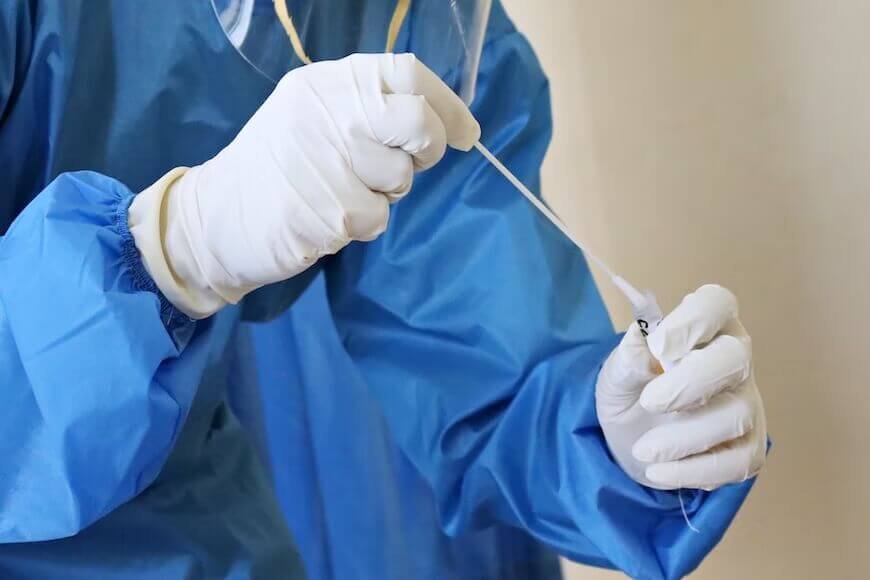The coronavirus (COVID-19) is a new virus that was first identified in 2019. It has since been identified in several countries worldwide and has caused several confirmed cases and deaths. While the virus is still relatively new, and little is known about it, here are the things you should know about testing for COVID-19.
What is coronavirus (COVID-19)?
The coronavirus, called COVID-19, is a respiratory sickness spreading quickly all over the world. It was first seen in Wuhan, China during December 2019 and has since then impacted more than 100 nations. Symptoms of the virus include fever, dry cough, and difficulty breathing. The virus can be transmitted through person-to-person contact or contact with contaminated surfaces.
What is a coronavirus test?
One way to track the spread and containment of the virus is through testing. A coronavirus test involves collecting a sample from someone’s nose or throat using a swab. The sample is analyzed in a laboratory to determine if the person has an active infection with the virus. These tests can also be used to see if someone has developed antibodies, indicating that they may have had a past infection.
However, it is essential to note that there is currently limited availability for coronavirus testing, and results may take several days or weeks to come back. It is crucial for individuals who have symptoms or have been exposed to the virus to follow guidelines from local health authorities and minimize potential spread.
Stay informed and stay safe.
Where can you go to get a test?
There are multiple places where you can get a coronavirus test. Your first option should be to contact your primary care physician or health insurance provider for guidance on where to get tested and an expert medical diagnosis.
It’s important to note that these options may have different eligibility criteria and require an appointment. Before heading out for your test, call ahead and inquire about any necessary steps. Taking the initiative to get tested helps protect yourself and those around you and supports efforts to contain the disease.
Things you should know about testing for coronavirus
Testing for the coronavirus (COVID-19) is a complex procedure that requires special equipment and training. Here is what you should know about testing for this virus:
Special equipment and trained personnel are needed
Testing for the coronavirus requires specialized medical equipment and trained personnel. Laboratories equipped to test for diseases like COVID-19 typically have access to advanced testing technology, such as PCR machines, which make it possible to quickly and accurately detect viral DNA or RNA in blood samples or other body fluids.
Test results may take time
You may need to wait several days before your test results become available. In some cases, the tests used to diagnose COVID-19 can take anywhere from 2 to 4 hours, but they may also require a longer waiting period before results are available.
Not all those infected will be symptomatic
Some people will experience only mild symptoms, if any at all, and may not even realize that they’ve been exposed to the virus or have it themselves. Others may require hospitalization due to severe respiratory illness or other complications related to COVID-19 infection.
Health measures are best to prevent infection
The best way to prevent infection is through regular hand-washing and social distancing measures, including avoiding large crowds of people, staying home when you’re sick, and washing your hands often with soap and warm water for at least 20 seconds (or longer if your hands are visibly dirty).
Seek medical attention if you show symptoms
If you develop a fever, coughing or difficulty breathing, you should seek medical attention immediately. These are common symptoms of COVID-19 infection and can signal a more severe illness that may require hospitalization.
There is no cure to date
There is currently no cure for the coronavirus disease (COVID-19), but treatment options are available to help manage symptoms and reduce complications such as pneumonia and respiratory failure. Some antiviral drugs are effective against viruses related to the SARS-CoV-2 pathogen, so clinicians may consider using these medications to help limit overall damage caused by the virus.
You can take steps to prevent an outbreak
The best way to protect yourself during an outbreak is to take simple steps like washing your hands regularly with soap and warm water, avoiding large crowds, and staying home from work or school if you feel unwell.
Always remain calm
It is essential to stay calm and avoid making assumptions about how the virus spreads or who is at risk for contracting it. The facts about COVID-19 are still being discovered, so it’s essential to consult official resources and medical professionals before drawing conclusions based on media reports or word of mouth.
Most who get sick recover
While some people have died as a result of complications related to COVID-19 infection, many others who have been exposed to the virus have fully recovered with no serious lasting effects.
Final thoughts
The evolving situation with the coronavirus (COVID-19) is challenging for everyone. However, by understanding how testing works and what to expect, we can all help slow the spread of this disease. The sooner you are diagnosed, the sooner you can start treatment and avoid infecting others. There is no one-size-fits-all answer to whether or not you should be tested, but these guidelines will help you make an informed decision.

